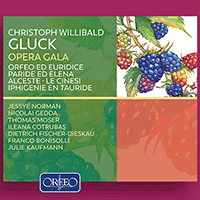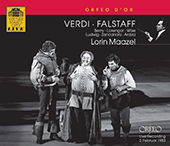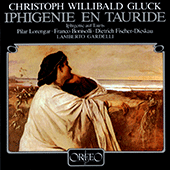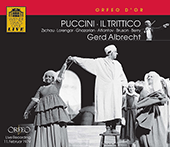Pilar Lorengar
Pilar Lorengar (originally Pilar Lorenza García) sang in local radio programmes as a child and began formal music lessons when she was fourteen with Margarita Martínez. Having moved to Barcelona to study at the Barcelona Conservatory, she began performing in various halls to pay for her lessons and later studied with the Spanish lyric soprano Ángeles Otein in Madrid as well as with Hertha Klust, Dietrich Fischer-Dieskau’s teacher, in Berlin.
In 1949 Lorengar joined the chorus of the Teatro de la Zarzuela, Madrid and in 1950 made her stage debut in the title role of Vives’s zarzuela Maruxa at Oran, Algeria. Her Spanish debut took place in 1951 in Madrid as Clara in the premiere of Guerrero’s zarzuela El canastillo de fresas; the following year she sang in performances of Beethoven’s Symphony No. 9 and Brahms’s Ein Deutsches Requiem in Barcelona.
Internationally, Lorengar’s career took off in 1955 when she sang Cherubino / Le nozze di Figaro at the Aix-en-Provence Festival. In the same year she made her debut at the Royal Opera House, London as Violetta / La traviata, returning to London often during the 1960s and 1970s in roles such as Donna Anna / Don Giovanni, the Countess / Le nozze di Figaro, Fiordiligi / Così fan tutte, Eurydice / Orfeo ed Eurydice (both new productions with Solti conducting in 1968 and 1969) and Alice Ford / Falstaff. Lorengar’s North American debut also occurred in 1955, in a concert performance of Granados’s Goyescas in New York.
A close association with the Glyndebourne Festival Opera began in 1956 when she sang Pamina / Die Zauberflöte; returning in the same role in 1957 and 1960, and as the Countess in 1958 and 1959. At Glyndebourne Lorengar developed a close relationship with the stage director Carl Ebert and admired the strong sense of ensemble to be found there.
Lorengar repeated Pamina, with Sir Thomas Beeecham conducting, at the Teatro Colón, Buenos Aires in 1958, the year in which she joined Berlin’s Städtische Oper (later the Deutsche Oper) at the invitation of Ebert, the company’s intendant. She made her debut there in Carl Orff’s Carmina Burana and remained with the company for more than thirty years as a much-loved member. During this period, in addition to her established roles, Lorengar sang Mařenka / The Bartered Bride, the title role in Janáček’s Jenůfa, Regina / Mathis der Maler, Ysabella di Castiglia / L’Atlàntida (Falla) and Valentine / Les Huguenots.
At Salzburg Lorengar first appeared in 1961 as Ilia / Idomeneo, returning to sing Pamina in 1963 and 1964 and Ismene / Mitridate, rè di Ponto (Mozart) in 1971. She also gave several concerts, including a most successful zarzuela evening with Plácido Domingo in 1983.
In 1964 Lorengar first sang with the San Francisco Opera, as Desdemona / Otello, Liù / Turandot and the Countess; returning the following year as Eva / Die Meistersinger von Nürnberg, Mélisande / Pelléas et Mélsiande and Donna Anna. Later roles included Alice Ford, Elsa / Lohengrin and the title role in Suor Angelica; and in 1989 Lorengar was awarded the San Francisco Opera Medal for twenty-five years of devoted service.
Lorengar’s debut at the Metropolitan Opera, New York took place in 1966 as Donna Elvira / Don Giovanni. For eleven seasons she returned regularly, singing Elsa, Eva, Agathe / Der Freischütz, Antonia / Les Contes d’Hoffmann, Butterfly / Madama Butterfly and Micaëla / Carmen, as well as the Countess and Pamina; her last appearance at the Met was as Fiordiligi in 1982.
A welcome guest at the state operas of Munich and Vienna, as well as at Madrid and Barcelona where she made her belated debut at the Teatro Liceu as Elsa in 1986, Lorengar also appeared with the Chicago Lyric Opera: for instance as Elisabetta / Don Carlo in 1971.
Having been made an honorary member of the Deutsche Oper in 1984 and sung Maddalena / Andrea Chénier at Strasbourg and Lyons in1989, Lorengar gave her farewell performance at the Deutsche Oper in the title role of Tosca in 1990. Her final recital before her eventual death from breast cancer was in 1991.
Lorengar displayed a vivacious personality on-stage and possessed an extremely well-schooled voice, which she used with a sure sense of style.
© Naxos Rights International Ltd. — David Patmore (A–Z of Singers, Naxos 8.558097-100).




















